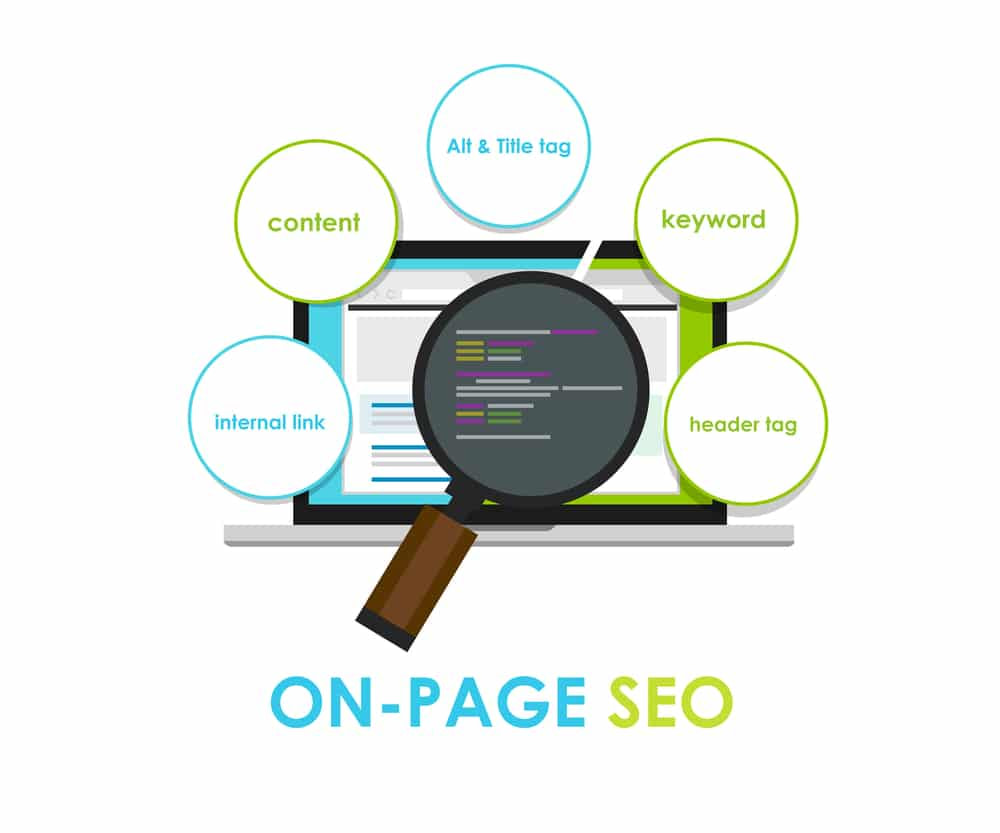The Difference between on and off-page SEO
When it comes to search engine optimization, you've undoubtedly heard about both on-page and off-page SEO. So now, what is it? Let's start with the on-page. Before you even consider off-page SEO, you must ensure that your on-page SEO is set up correctly.

There are a few advanced on-page strategies, but today we will only cover the basics you need to get started.
What is on-page SEO?
On-page, SEO is simply optimizing your website or blog for search engines. Simple as that. On-page SEO is essential to any successful search engine optimization (SEO) strategy. Optimizing various elements on your website's pages, such as titles, headings, images, URLs, and content, increases its visibility and ranking on search engines.
On-page SEO helps search engines understand what your website is about and how it should be ranked with other websites. With the proper techniques, you can ensure your website appears more often in searches related to its content and purpose.
Additionally, you can use on-page SEO to focus on a specific keyword or phrase that will help the page rank higher for related queries. Optimizing these elements of your webpage can improve your search engine ranking and user experience.
Here are the main things you need to look at when optimizing your website:
- Your Meta-tags, mainly the title and description tags.
- Your Alt tags for your images.
- Your website's loading speed.
- Is your landing page answering the search query you're looking to rank for?
- Is your website easy to navigate?
- Does your content match the search query?
Those are just some of the basics of on-page SEO.
Now let's look at off-page SEO.
What is off-page SEO?
Off-page SEO is how you promote your website "off-page.” Off-page SEO is optimizing a website for search engine visibility outside the confines of the actual website.
It involves building inbound links from external sources, such as other websites and social media platforms. By having more links to a website from reputable sources, search engine algorithms are more likely to rank it higher.
Off-page SEO includes keyword research, link building, and content optimization. These activities can help improve a website's ranking by making it easier for search engines to find relevant content related to the searched keywords or phrases.
Off-Page SEO is the technique used to promote a website to increase its visibility and rank on search engine results pages (SERPs).
This includes link building, social media marketing, content creation, and press releases. Off-Page SEO is integral to any successful marketing campaign since it helps drive traffic to a website and increase its organic search engine rankings.
Link building is one of the most common off-page SEO strategies that involve creating backlinks from other websites to generate more visits and higher rankings for a website.
Social media marketing is another off-page SEO tactic that shares content across popular networks like Facebook, Twitter, Instagram, and LinkedIn.
Content creation is another form of off-page SEO that involves creating high-quality blog posts and articles related to a website's topic or niche.
Finally, press releases are also used as an off-page SEO technique. They can help generate publicity for a website by submitting newsworthy information about the site to various media outlets.
The primary purpose of off-page SEO is to have what is known as a backlink point to your website.
The stronger your backlinks are, the more "link juice" will be passed to your website, pushing the rankings in the long run.
What is Link Juice in SEO?
Link juice is a term used in SEO to refer to the amount of authority or link equity that a webpage receives from other sources. This can come from various places, such as other websites linking to the page, social media shares, and more.
It is essential in SEO because the more link juice a webpage has, the higher it will rank in search engine results. Link juice also helps search engines understand the relevance of a page, which can ultimately lead to increased website traffic and conversions.
Link Juice in SEO describes a website's power or authority over other websites. Link Juice is passed on when one website links to another. The amount of juice or strength passed on depends on the quality and quantity of backlinks from the linking website.
Link Juice can help improve a website's ranking in search engine results and its overall visibility and credibility within the digital community. Therefore, it is essential to any successful SEO campaign and should be considered when building or optimizing a website's link profile.
Now you know the main differences between on-and-off page SEO.
Search Engine Optimization can be simple, but it can be time-consuming if you want to do things right.
If you need help with your SEO, social media, or online marketing efforts, feel free to contact us any time. We'd love to help you.
Recommended reading:

